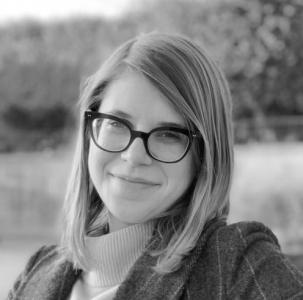Talia Kwartler
Talia Kwartler
Vita


Talia Kwartler is a PhD Candidate in the History of Art at University College London, where she is completing her dissertation, “Suzanne Duchamp Does More Intelligent Things Than Paint,” under the supervision of Briony Fer. In 2021, she came to DKF Paris having obtained the Gerald D. Feldman Travel Grant (conferred by Max Weber Foundation). Between 2013 and 2018, she worked at the Museum of Modern Art in New York on the exhibitions Francis Picabia: Our Heads Are Round so Our Thoughts Can Change Direction (2016–17) and Max Ernst: Beyond Painting (2017–18). Kwartler holds a bachelor’s degree in Art and Archaeology with a certificate in Italian Language and Culture from Princeton University and a master’s degree in the History of Art from the University of Oxford. She has published essays in journals, anthologies, and exhibition catalogues, and has given talks at various institutions, including the American Academy in Rome, Centre Pompidou, École nationale des chartes, Musée de Grenoble, Tate, and the University of Edinburgh. Kwartler is a contributor to The Burlington Magazine and Texte zur Künste.
Research focus 

Suzanne Duchamp Does More Intelligent Things Than Paint.
Suzanne Duchamp pushed the boundaries of painting by incorporating unorthodox, machine-made materials within interconnected pictorial geometries. This doctoral thesis focuses on Duchamp’s distinct way of combining modern elements with traditional mediums and situates her within dialogues on the readymade taking place between New York, Zurich and Paris during the 1910s and 1920s. These exchanges involved an international group of artists, including her husband Jean Crotti, her older brother Marcel Duchamp, Elsa von Freytag-Loringhoven, Francis Picabia, Man Ray, Sophie Taeuber-Arp and Beatrice Wood. While Duchamp has been summarily treated in the literature on Dada, there has been little concentrated attention focused on her specific involvement with this avant-garde or her sustained artist practice. Her engagement ranged from correspondences with Marcel Duchamp while he was based in New York to in-person collaborations when many of these artists returned to Paris after World War I, especially Picabia and Crotti, who she married in 1919. By exploring Duchamp’s painting and poetry both in relationship to other artists and as a body of work in its own right, this doctoral thesis presents a more nuanced understanding of her individual approach, while shedding greater light on ideas she shared with other Dadaists. By turning the spotlight to Suzanne Duchamp’s particular place within the history of Dada, renewed consideration can be given to broader transatlantic conversations centered around the readymade, language, and the shifting status of painting, which were at the heart of the movement.




